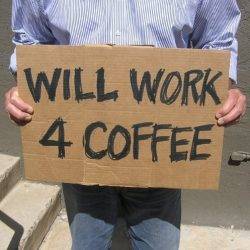May 31, 2017
Brexit uncertainty fails to impact London office demand, as occupiers push ahead with relocations 0
 Since the announcement in June last year that Britain would be leaving the EU as a result of Brexit, there has been a widespread assumption that occupier demand, and hence wider market confidence in the commercial property market, would be knocked. Yet that does not seem to be the case, according to a study by real estate advisers Knight Frank, who have tracked financial and TMT requirements over the last 12 months, and compared them to key years in the property cycle. The study claims that the property market has mirrored the wider UK economy, which has proved resilient following the vote to leave the EU. Firms have reported a shortage of skilled workers across a range of industries including IT, accountancy and engineering. Demand for staff is growing within all sectors and all regions of the UK, but there are fewer and fewer people available to fill the vacancies. A survey of UK CEO’s conducted by PWC at the start of the year reported that six in every ten respondents expected an increase in company headcount during the course of the year. Furthermore, a number of large international firms have acquired new offices, and many companies expanded across Central London including Expedia, WeWork, HSBC Digital and Zoopla.
Since the announcement in June last year that Britain would be leaving the EU as a result of Brexit, there has been a widespread assumption that occupier demand, and hence wider market confidence in the commercial property market, would be knocked. Yet that does not seem to be the case, according to a study by real estate advisers Knight Frank, who have tracked financial and TMT requirements over the last 12 months, and compared them to key years in the property cycle. The study claims that the property market has mirrored the wider UK economy, which has proved resilient following the vote to leave the EU. Firms have reported a shortage of skilled workers across a range of industries including IT, accountancy and engineering. Demand for staff is growing within all sectors and all regions of the UK, but there are fewer and fewer people available to fill the vacancies. A survey of UK CEO’s conducted by PWC at the start of the year reported that six in every ten respondents expected an increase in company headcount during the course of the year. Furthermore, a number of large international firms have acquired new offices, and many companies expanded across Central London including Expedia, WeWork, HSBC Digital and Zoopla.















 Nearly half of UK employees are effectively working an extra day per week for free, claims new research from Powwownow. On average, UK workers spend just under seven hours per week working outside of contracted hours – the equivalent of a nine-to-five working day with an hour for lunch – but nearly half of them (42 percent) receive no pay for this extra days’ worth of work. A quarter of UK workers (26 percent) receive their standard pay for any overtime, while a fifth (21 percent) are rewarded with ‘time and a half’. Only 6 per cent receive ‘double time’. Germans get a worst deal though, as employees spend an average of 7 hours and 54 minutes working extra but a huge 61 percent of workers receive no pay at all for this time. Workers in Sweden spend the least time working outside of contracted hours, with only 4 hours and 9 minutes of extra work per week.
Nearly half of UK employees are effectively working an extra day per week for free, claims new research from Powwownow. On average, UK workers spend just under seven hours per week working outside of contracted hours – the equivalent of a nine-to-five working day with an hour for lunch – but nearly half of them (42 percent) receive no pay for this extra days’ worth of work. A quarter of UK workers (26 percent) receive their standard pay for any overtime, while a fifth (21 percent) are rewarded with ‘time and a half’. Only 6 per cent receive ‘double time’. Germans get a worst deal though, as employees spend an average of 7 hours and 54 minutes working extra but a huge 61 percent of workers receive no pay at all for this time. Workers in Sweden spend the least time working outside of contracted hours, with only 4 hours and 9 minutes of extra work per week.






 HR professionals will, on average, oversee 15 staff with mental health conditions each year, according to new analysis from consultancy, the
HR professionals will, on average, oversee 15 staff with mental health conditions each year, according to new analysis from consultancy, the 
 One of the biggest concerns cited by many of those being polled on their views during the General Election campaign has been the high cost of living compared to wages. Now a new report claims that over half (55 percent) of employees are experiencing financial problems, which are affecting their behaviour, relationships and ability to perform at work. Although the nationwide study of the financial wellbeing of UK workers The DNA of Financial Wellbeing 2017 report, claims that nearly a third (32 percent) cite finance as their biggest concern; 66 percent of HR directors, think that financial worries are not of concern to their employees. The findings from Neyber, a financial wellbeing company, shows that 47 percent of workers are borrowing money to meet their basic financial needs, with 25 percent borrowing on a credit card, followed by 13 percent through a bank overdraft and 13 percent borrowing from friends and family. Meanwhile, an increase in so-called zero hour contracts means that nearly half (47 percent) of workers in the North and Midlands have an income fluctuation of more than 10 percent each month.
One of the biggest concerns cited by many of those being polled on their views during the General Election campaign has been the high cost of living compared to wages. Now a new report claims that over half (55 percent) of employees are experiencing financial problems, which are affecting their behaviour, relationships and ability to perform at work. Although the nationwide study of the financial wellbeing of UK workers The DNA of Financial Wellbeing 2017 report, claims that nearly a third (32 percent) cite finance as their biggest concern; 66 percent of HR directors, think that financial worries are not of concern to their employees. The findings from Neyber, a financial wellbeing company, shows that 47 percent of workers are borrowing money to meet their basic financial needs, with 25 percent borrowing on a credit card, followed by 13 percent through a bank overdraft and 13 percent borrowing from friends and family. Meanwhile, an increase in so-called zero hour contracts means that nearly half (47 percent) of workers in the North and Midlands have an income fluctuation of more than 10 percent each month.











